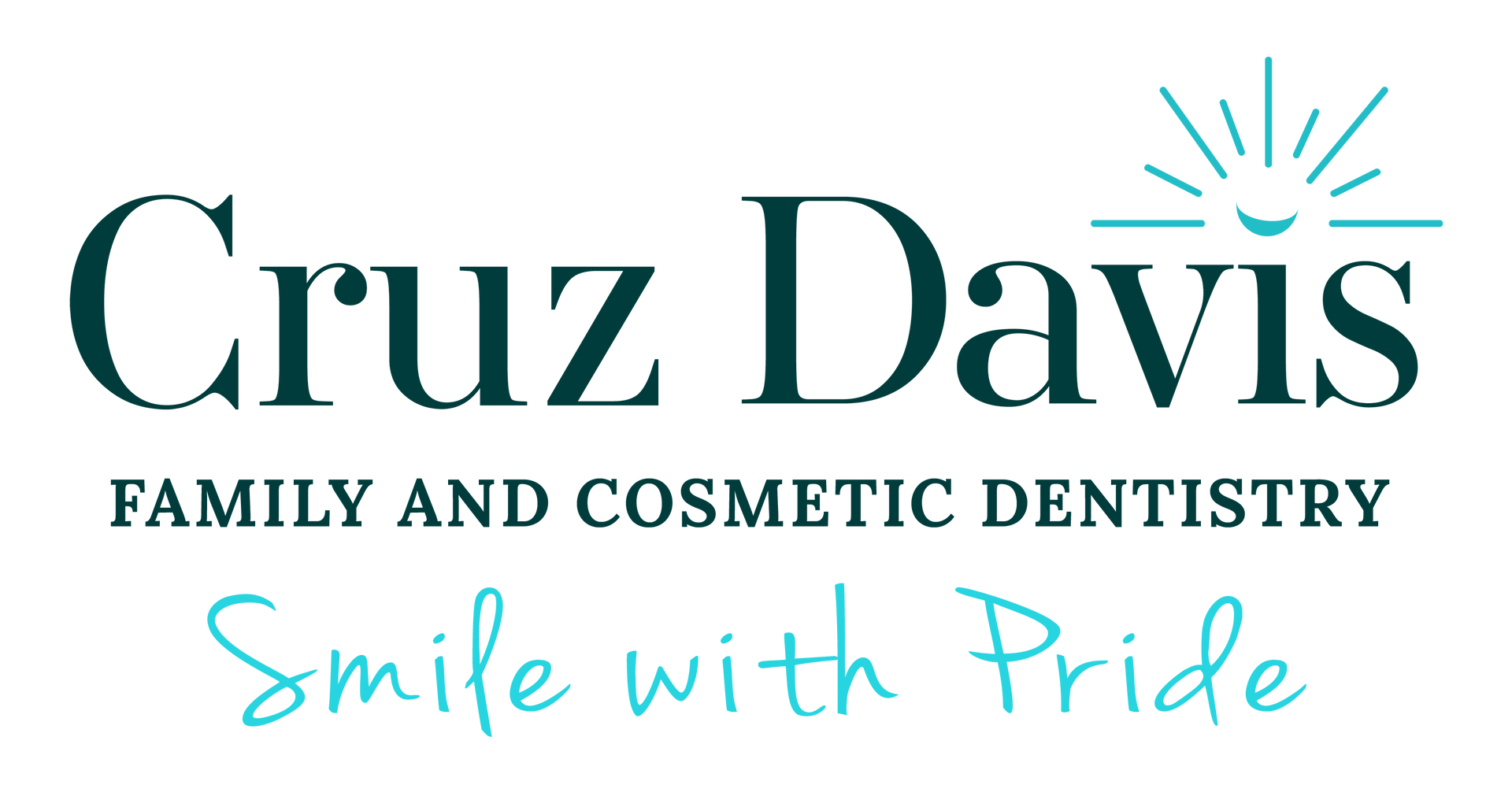Dental Emergency
Call (352) 384-0050, press 2 and leave a message if no one answers, and we will return your call as soon as possible.
Dental Emergency
Call (352) 384-0050, press 2 and leave a message if no one answers, and we will return your call as soon as possible.

Slide title
Write your caption hereButton
TMJ & Sleep Apnea
Treatments to Help you Live and Sleep Better
Do you wake up in the mornings feeling exhausted, almost as if you didn’t sleep? Dr. Cruz-Davis and his trusted Gainesville team want to help. Most people don’t know that temporomandibular joint issues (TMJ disorders) and sleep apnea could be responsible for a number of symptoms that you may experience in your daily life, including fatigue, headaches and jaw pain. See treatment options that our dental office in Gainesville offers to relieve symptoms associated with TMJ and Sleep Apnea disorders.
⭐⭐⭐⭐⭐
“I went to see Dr. Cruz Davis for a night guard. He was extremely knowledgeable, professional, and personable. He spent a significant amount of time with me, answered all my questions, and made sure the guard fit appropriately. Additionally, the front desk staff and other employees were all very friendly and helpful. I would highly recommend this practice to anyone.”
– Marissa B.
Botox®
Dental procedures using Botox are minimally invasive and have gained considerable popularity over the past decade. Botox's known applications continue to expand, as Dentists use Botox to treat dental conditions like High Lip Lines, Temporomandibular Joint Disorder (TMJ), Bruxism, and Dentures that no longer fit due to shifting jaw muscles.
Doctors can utilize Botox medically to treat certain conditions like TMJ and migraine headaches, and also cosmetically to remove and prevent wrinkles. Dr. Cruz-Davis is certified and experienced at administering Botox for both medical and esthetic purposes.
What is Botox?
Botox is a manufactured drug derived from the bacterium Clostridium botulinum. While the same bacterium causes botulism, the active, therapeutic neurotoxin in Botox is harvested and separated before being purified in a lab, making the substance safe and effective for human treatment when administered properly by a trained physician or other trusted health provider.
How Does Botox Work?
Botox attaches to the endings of the nerves that control the injected muscle. The transformation begins within only a few hours of being injected. Over the next several days, the drug starts to block the transmission of nerve signals that cause muscle contractions, and continues to block these nerve signals for three to four months. Botox only affects the nerves connected to motor neurons, without affecting those connected to sensory neurons — the receptors for feeling pain and temperature. As the Botox wears off, so does the muscle paralyses, resulting in the return of the patient's symptoms, at which point another dose of Botox can be administered.
How is Botox used in Dentistry?
As the use of Botox in dentistry continues to gain popularity, scientists conduct more research to investigate its uses. Some of the common uses of Botox include to correct parafunctional clenching, for extracapsular myogenic temporomandibular disorder, trismus, and to treat headaches that are symptomatic of these conditions.
More than just a stand-alone procedure, Botox can be used in a dental office as part of a comprehensive treatment plan. The dental professional should have received appropriate education, training and certification prior to administering Botox.
TMJ
The exact cause of a person's TMJ disorder is often difficult to determine. Your pain may be due to a combination of factors, such as genetics, arthritis or jaw injury. Some people who have jaw pain also tend to clench or grind their teeth (bruxism). In most cases, the pain and discomfort associated with TMJ disorders is temporary and can be relieved with self-managed care or nonsurgical treatments.
TMJ can develop from a variety of different circumstances including dental or other trauma, improper bite / malocclusion, general wear and tear, teeth grinding, and arthritis. Regardless of how our patients developed TMJ, Dr. Cruz Davis will evaluate the TMJ with a thorough examination before offering a plan of treatment to help alleviate the associated pain and discomfort.
Signs & Symptoms of TMJ
- Constant Pain or Tenderness in the Jaw
- Pain in one or both Temporomandibular Joints
- Pain & Sensitivity Around the Ear
- Difficulty or Painful Experience Chewing
- Jaw Locks

Slide title
Write your caption hereButton
Sleep Apnea
Sleep apnea is a common condition in which your breathing stops and restarts many times while you sleep. This can prevent your body from getting enough oxygen.
To treat snoring associated with sleep apnea, our dental office offers an oral appliance that pulls the lower jaw forward opening the airway. These snore guards are fit for comfort and can fit the palm of your hand.
Custom fit and only worn during sleep, patients can drink and talk while wearing the mouth guards, which ultimately prevent your airway from collapsing.
Sleep apnea appliances are covered by many insurance plans, and we also offer a discount for our insurance-free Cruz Club members.
Please contact us today to schedule your consultation to help alleviate symptoms associated with TMJ Disorder and Sleep Apnea.
Here are some common symptoms associated with sleep apnea:
- Loud Consistent Snoring
- Stop Breathing During Sleep
- Insomnia
- Hypersomnia
- Attention, Concentration & Focusing Issues
- Irritability & Mood Swings
If you wake up with any of the following symptoms, it could be a sign of sleep apnea:
- Shortness of Breath
- Dry Mouth
- Sore Throat
- Headaches
Sports Guards & Other Mouth Guards
A mouth guard or sports guard is a removable mouthpiece designed to protect the teeth and mouth from trauma from high-impact sports like football, basketball, soccer, lacrosse, (field) hockey, boxing, martial arts, or from unconscious high pressure contact from teeth clenching, also called bruxism. A mouth guard or sports guard custom-made for you, your child, or your entire sports team, can help you sleep in peace and be awake without headaches and jaw pain.
Snore Guards
Snore Guard is a small removable Anti-Snoring Device. These mouthpieces are designed to keep the airways open, the jaws aligned, and the tongue and soft tissue in place during sleep to diminish snoring.
Schedule a comprehensive dental exam today! Give Cruz Davis Family & Cosmetic Dentistry a call now.
BUSINESS HOURS
- Mon - Thu
- -
- Fri - Sun
- Closed
Hygiene appointments available at 7am
Off-hours emergency visits available
CONTACT INFORMATION
PHONE: 352-384-0050
ADDRESS: 2845 NW 41 ST, Gainesville FL 32606
We are located by Thornebrook Village in Northwest Gainesville, near the Fresh Market.





